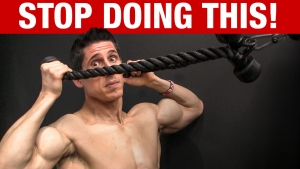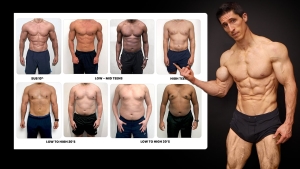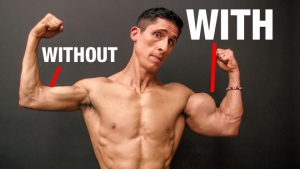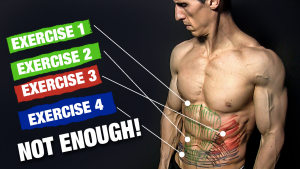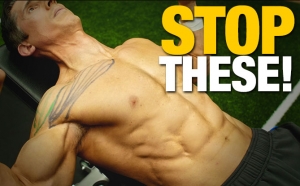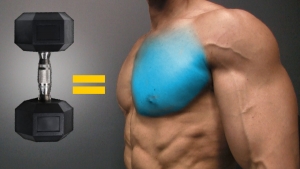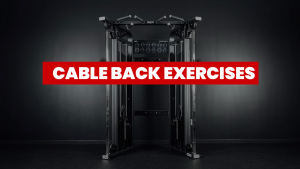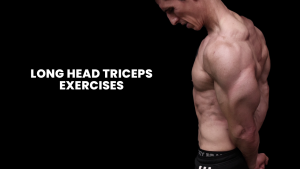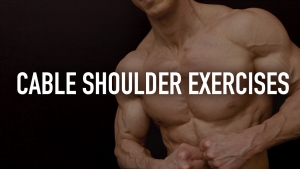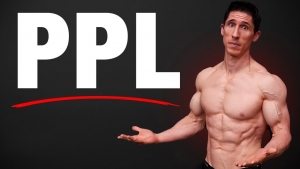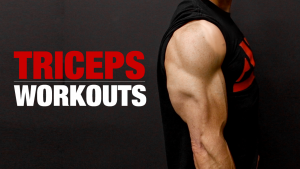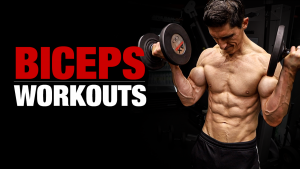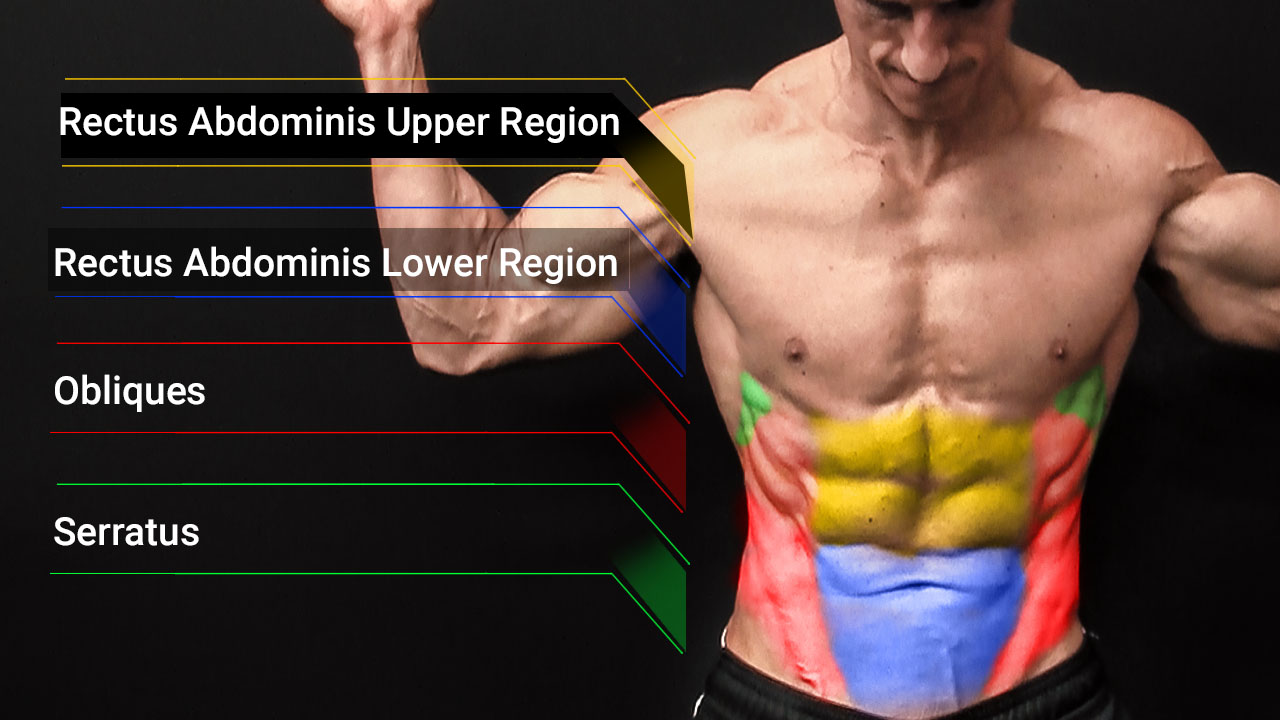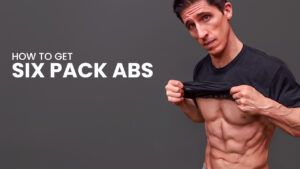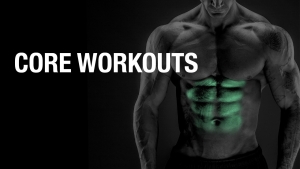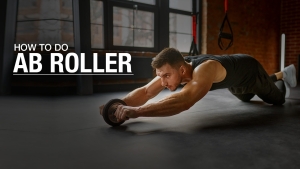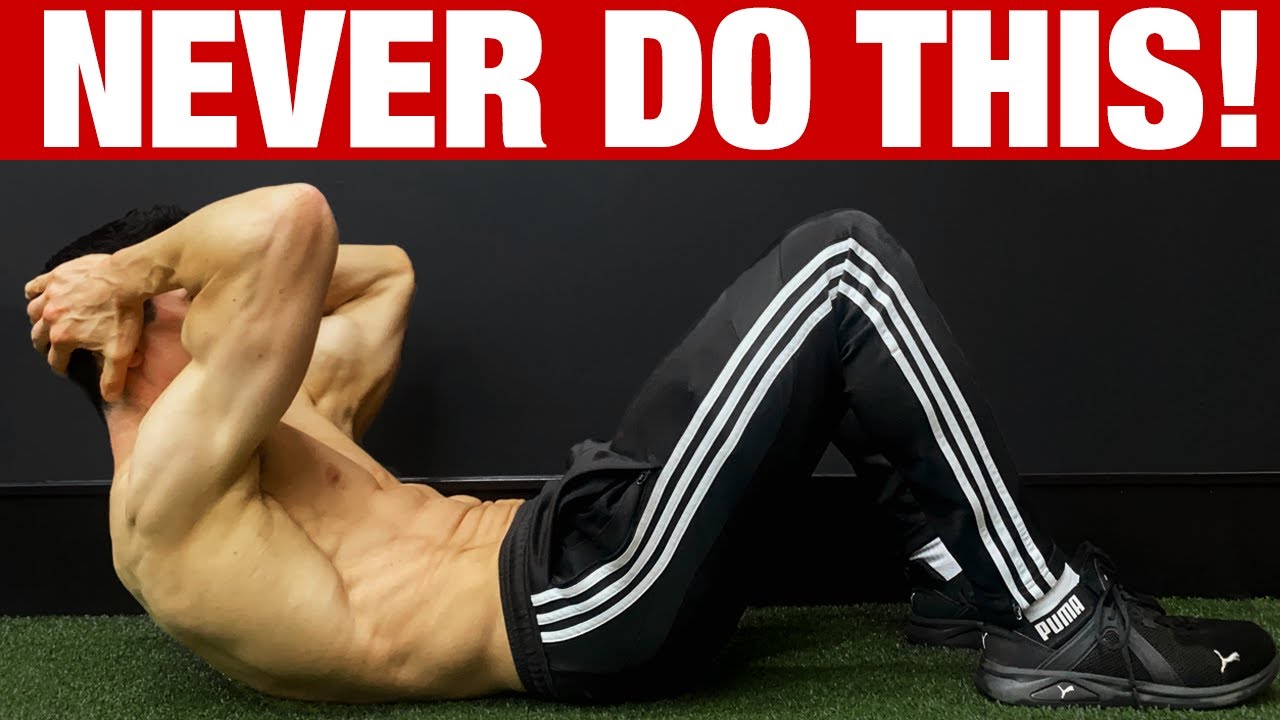
HOW TO DO CRUNCHES
Crunches are one of the most popular beginner core exercises, especially if your goal is to burn belly fat and build that much-desired six pack.
But here’s the thing, guys:
Crunches might be one of the most popular abdominal exercises, but they are also the one beginner exercise that is usually performed incorrectly. I don’t want this to be you!
Today, I want to discuss the top 10 most common abdominal crunch mistakes and exercise tips on how to fix them.
Guys, I guarantee you’re making at least ONE of these mistakes for this abdominal exercise so let’s make sure we fix that today so you can bring this information to your workouts this week.
Let’s jump into the best ways to do abdominal crunches, but first, we’ll need to cover the anatomy of the abdominals.
ANATOMY OF THE ABDOMINAL MUSCLES
The best way to maximize contraction of the abdominal muscles is by understanding the function of those core muscles in relation to which direction the muscle fibers move.
Now one thing you’ll immediately notice here is that the crunch is an isolation exercise, not a type of compound exercises.
RECTUS ABDOMINIS
The rectus abdominis muscle runs vertically straight up and down, and it’s targeted exclusively through flexion and extension exercises.

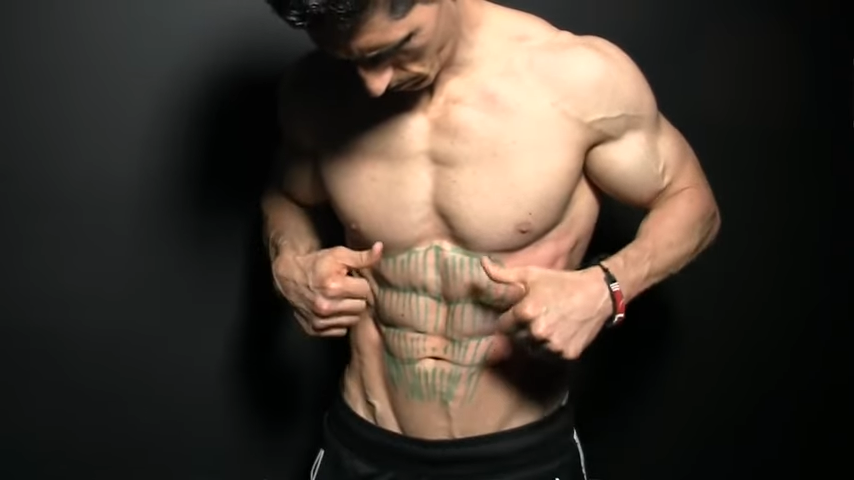
OBLIQUES
The obliques are angled muscles that run high to low and low to high. There are two sets of oblique muscles: the internal and external obliques. They help with rotating the torso laterally (sideways), as well as flexion and extension.

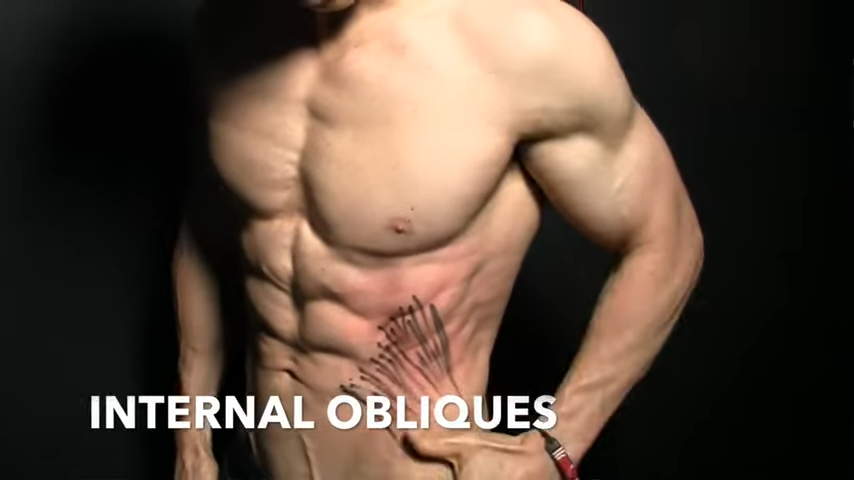

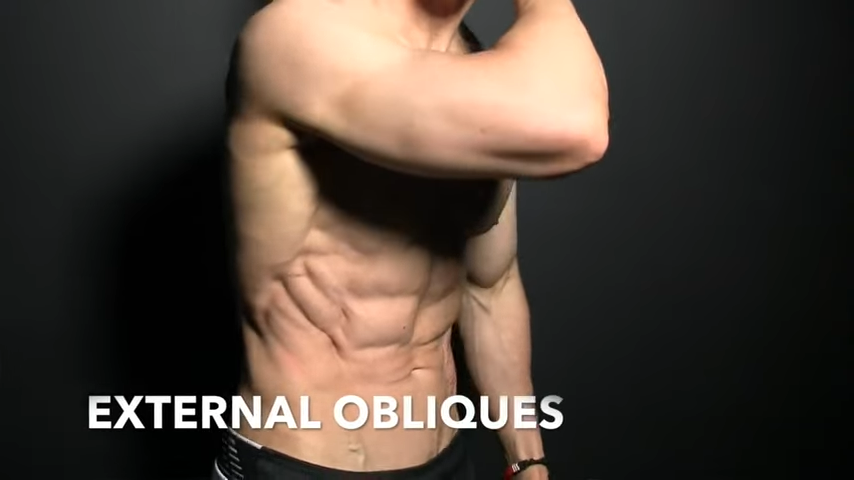
SERRATUS
One of the most neglected muscles of the abs, the serratus is intertwined with the external obliques. This means if you want to burn body fat and have six-pack abs, you’ll need to work both areas.

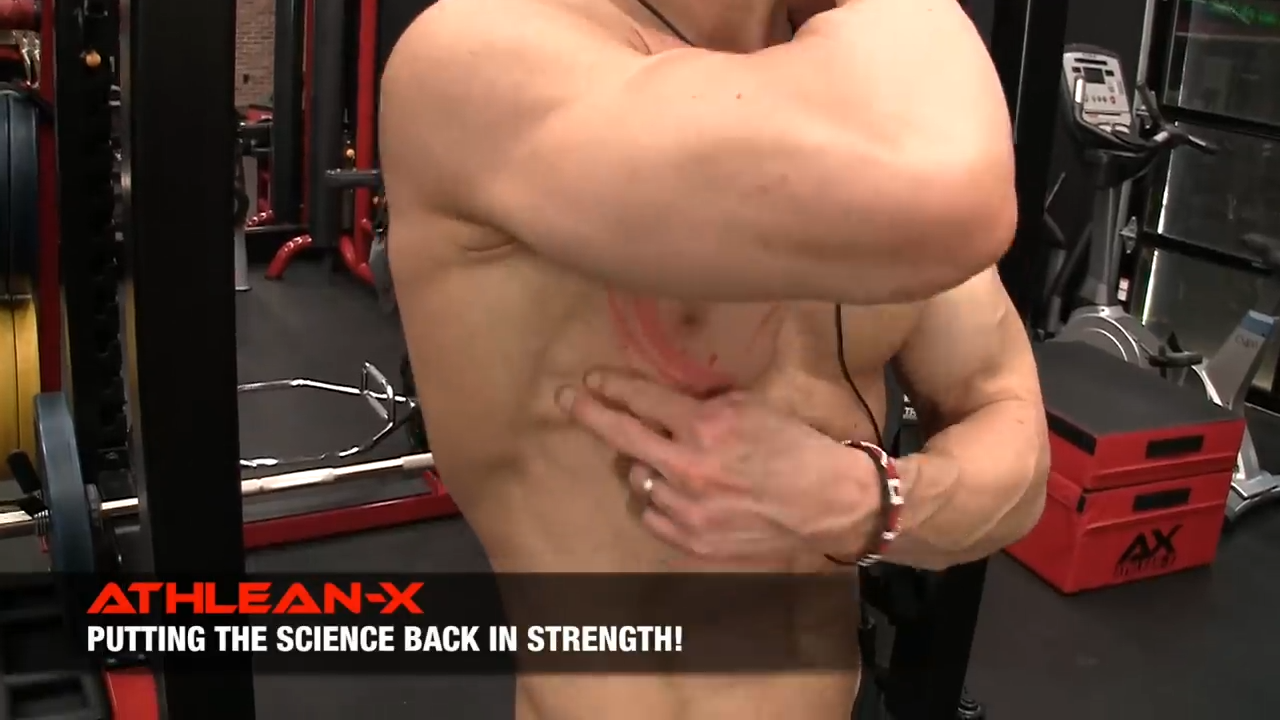
TRANSVERSE ABDOMINIS
The transverse abdominis runs horizontally. You can think of the transverse abdominis as your own internal weight belt. It helps with rotating the torso and stabilizing your spine.

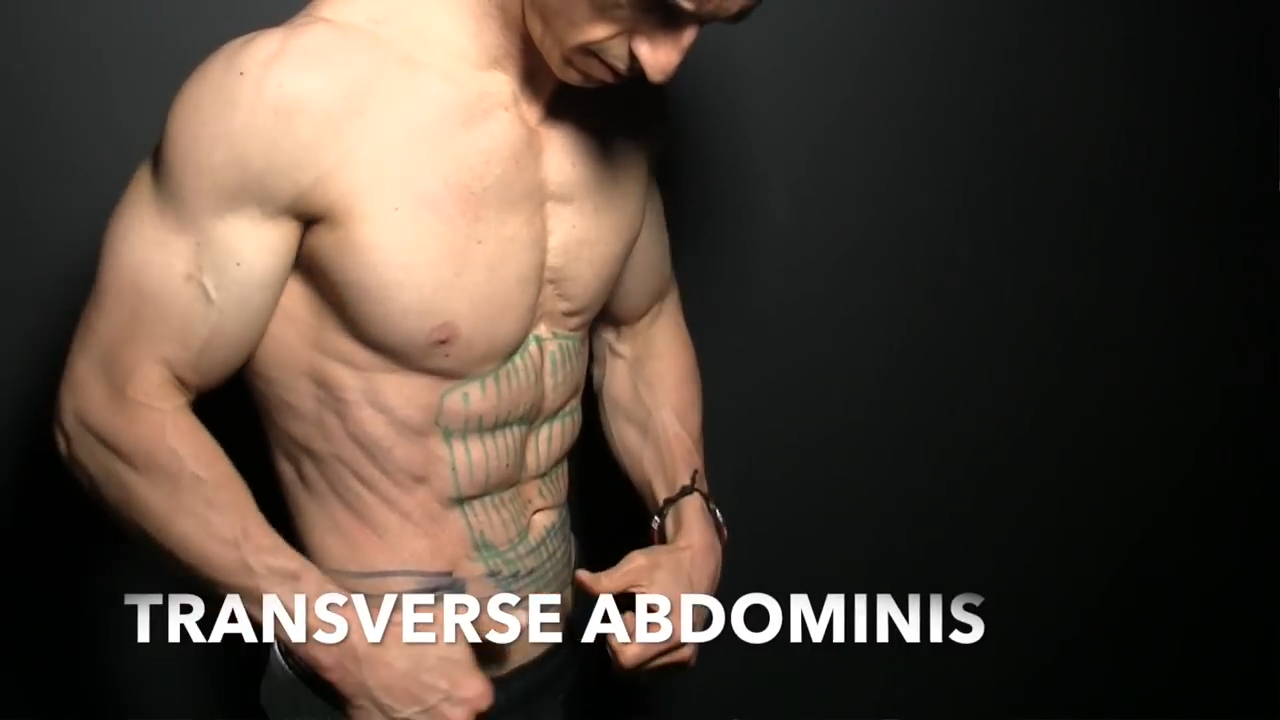
ABDOMINAL CRUNCHES COMMON MISTAKES
Now that you know exactly which muscles you need to target when performing a basic crunch, let’s jump into the top 10 most common mistakes with abdominal crunches.
As a trainer, these are the mistakes I see the most. I guarantee that you’re making at least one of these mistakes while performing this classic core exercise.
And here’s the thing, these mistakes aren’t connected to using weights during the crunch. Performing these with only body weight, you’ll still make the same mistakes. Using weights just makes the mistakes more extreme.
1) YOU THINK ABDOMINAL CRUNCHES SUCK
Mistake number one might come as a surprise to some of you, especially if you already believe that standard crunches are terrible and useless core exercises.
That being said, I’m a big fan of this core-strengthening exercise, and there’s good reason that’s it a favorite exercise of mine.

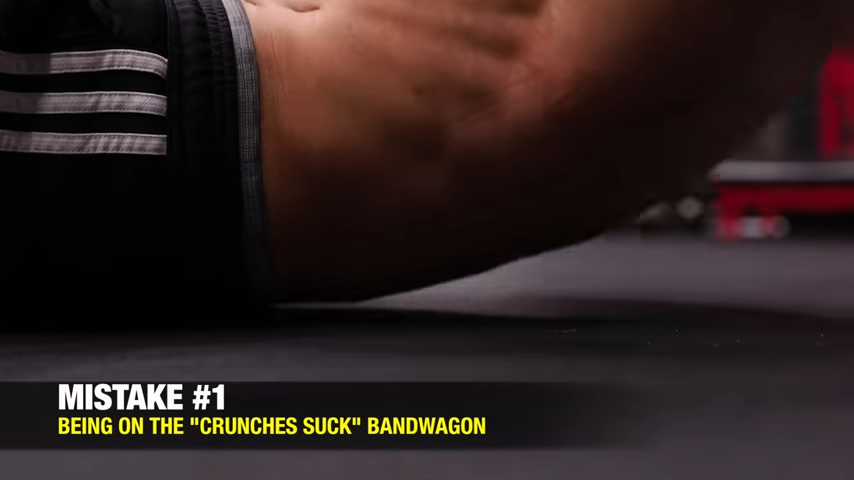
I appreciate the researchers that have gone into great depth to show that they don’t believe that crunches are an effective or safe bodyweight exercise.
However, I don’t necessarily agree with the research itself.
When this type of research is being done, it’s usually performed on animals, not humans. What’s more, when humans are used, it’s usually cadavers that are the test subjects.
These cadavers are dried out and they aren’t responding the same way that a living, breathing human being would respond.
Throw in the fact that the accumulation of load is typically not represented in a way that we do it when we do crunches.
Lumbar flexion is one of the main functions of the abdominal muscles. It’s one of the most common daily movements in our repertoire, and we can do it safely without increasing our risk of injury.
When we are activating lumbar flexion during an exercise routine, we actually take a break during the movement and we decompress from time to time, which saves the health of our spines.
The bottom line here is that it’s too early to jump on the “crunches suck” bandwagon, especially when we know that there are benefits to be had.
2) HOOKING YOUR FEET UNDER SOMETHING
Continuing with the point above: I’ll admit that people who say that crunches aren’t good are usually complaining about low back pain after doing them.
And I guarantee that more often than not, these same people are hooking their feet the wrong way during this basic exercise, which increases the risk of low back pain.
From the starting position on the floor, if you put your feet flat and under something to stabilize your body and pull up, all you’re doing is over activating your hip flexors.
And this can actually create low back pain because of their attachment on the lumbar spine.

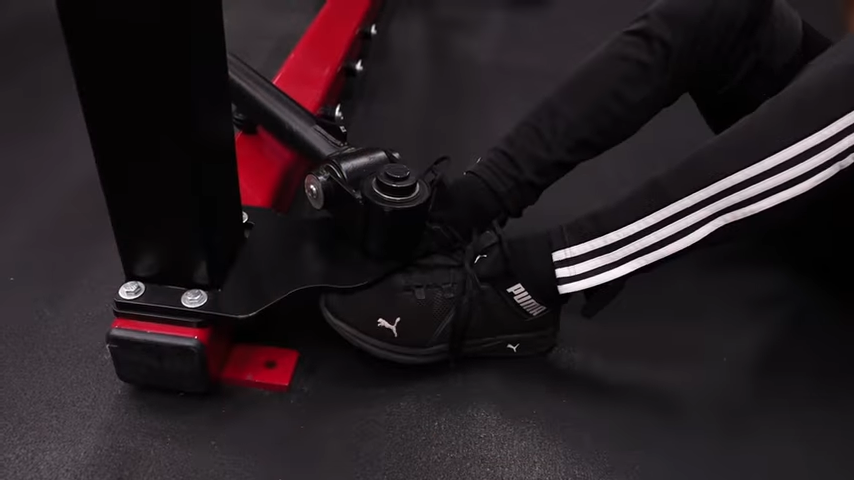
However, if you make the simple adjustment of putting your feet over the top of something to anchor your body, this gets you that all important activation of the hamstrings, letting the hip flexors relax and taking that excess strain off of your lower back.

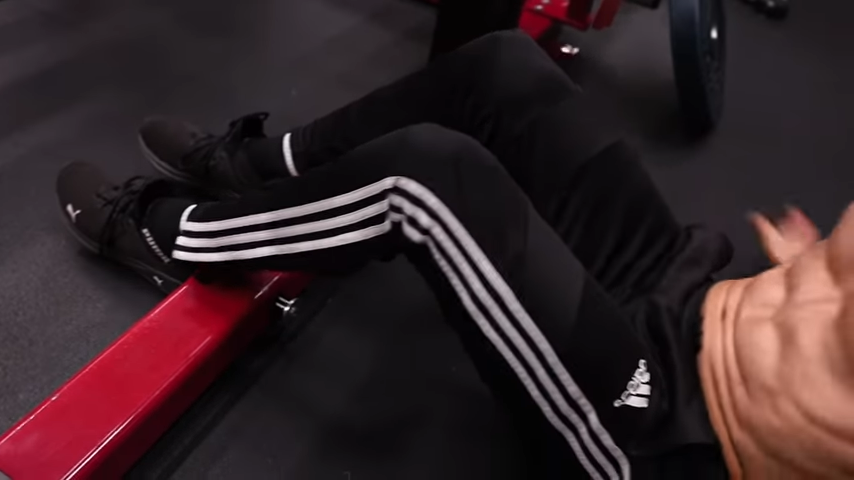
It’s a simple switch, but it’s a big one when it comes to leaving you with only the gains and none of the pains that you get from crunches.
3) PULLING ON YOUR NECK
Speaking of pains, what happens when you pull on your neck during crunches?
You’ll walk away with neck pain and potential neck injuries.

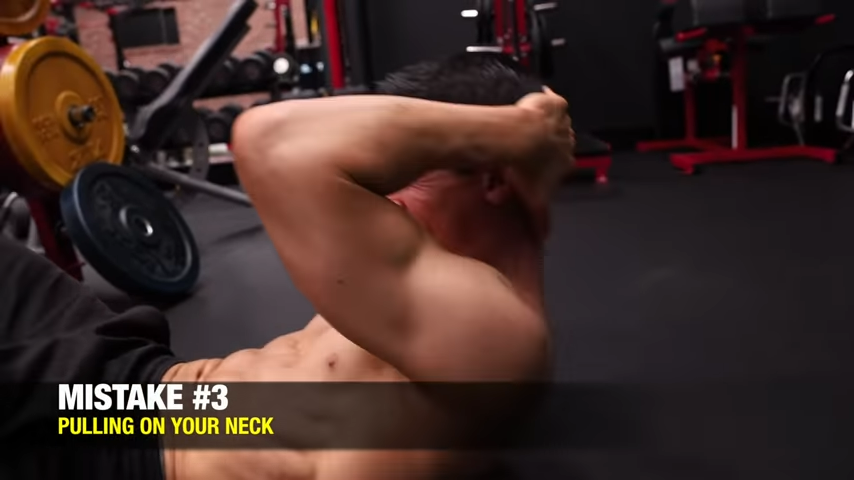
If there’s one thing I’ve seen in the gym more than anything else, it’s this:
People hook their hands behind their head, and they pull on their neck first, focusing only on moving their heads.
You’re focusing on the wrong point here, guys. You’ve got to focus on your core and shoulder blades.
The first step is to make sure that you’re clearing the bottom of your shoulder blades off the ground on every repetition WITHOUT straining your neck.
From the starting position, keep the neck neutral and relaxed. Don’t forget to have your shoulders relaxed and in a neutral position as well.
Also, try not to have the elbows pointing forward in a contracted state. Instead, let your elbows be more relaxed and off to the side.

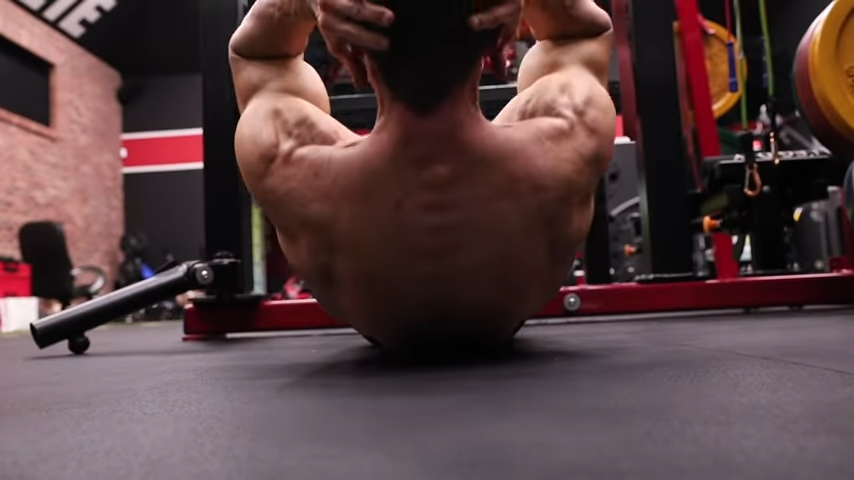
This means you need to keep your neck straight and focus on the contraction of the abs – not just the lifting of the upper body, which is the perfect segue into the next abdominal crunches mistake.
4) FOCUSING ON LIFTING UP – NOT CONTRACTING UP
When it comes to the most important part about doing a crunch, most of us worry about the wrong thing: getting to a fully seated position.
But most of us don’t necessarily worry about how we’re getting there.
Getting from Point A to Point B isn’t the important part; it’s the journey that got you there and the quality of the rep.
Now, there’s nothing wrong with a fully executed sit up, IF done properly.
But I’m saying when people are doing their crunches, they should stop focusing on the height that they get with their upper body and focus more on the quality and control of the contraction.

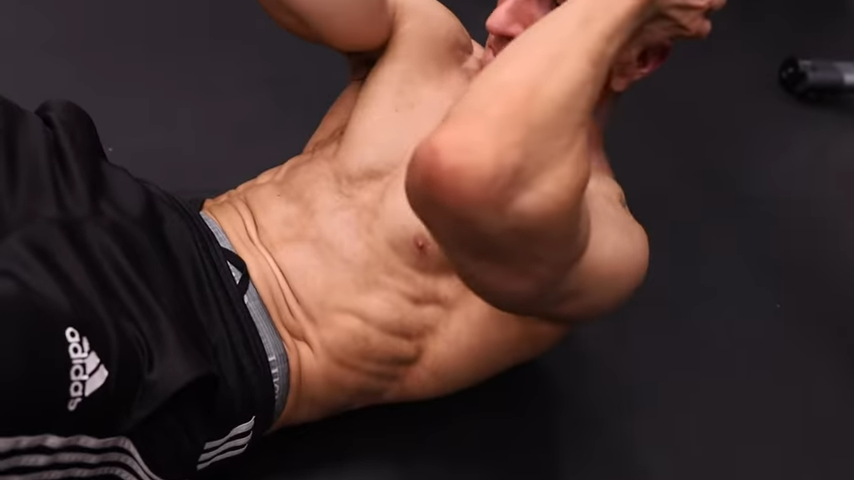
It doesn’t matter if you slow down your pace. It doesn’t matter if you can’t do as many.
The key is that you want to make sure that you have perfect form, your abs are initiating the contraction, and that same muscle is controlling it all the way up and all the way down.
The eccentric lowering on a crunch is just as important as the way up, but both of them matter.
And this will only happen if you’re focusing on the contraction of the abs alone and not just how high or how low you’re getting.
5) PUSHING YOUR ABS OUT
This next one can be confusing for a lot of people, but you have to make sure you get this right, so pay close attention here.
Guys, if you want your abs to look their best from the different types of crunches that you’re doing, you need to master the proper form technique of blowing air OUT while contracting your abs IN.
I know that seems like a contradiction but hear me out.
If you focus on just breathing air out AND puffing your stomach out, you’ll build up a bulging belly, even if it has a six pack over the top, rather than that flat type of belly that you’re looking for.
Now we all have been told that you want to breathe out on the exertion part during bouts of exercise, but it doesn’t mean you want to push out while you’re doing a standard crunch.
What I mean is you don’t want to distend your belly and push out as you’re coming up into a crunch.

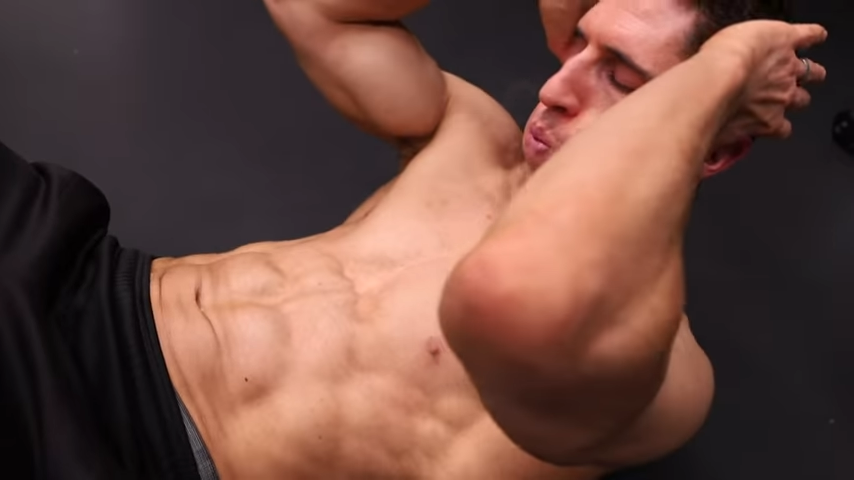
As a matter of fact, you want to try to pull down or cinch the stomach down as you breathe out.
And the way to do this with some good feedback is to just place something like an exercise ball, tennis ball, or an object on your belly button.
Lie down on an exercise mat and focus on first pulling your belly down, contracting the transverse abdominis and then initiating the crunch and not allowing that belly of yours to push out and have that object fall off.

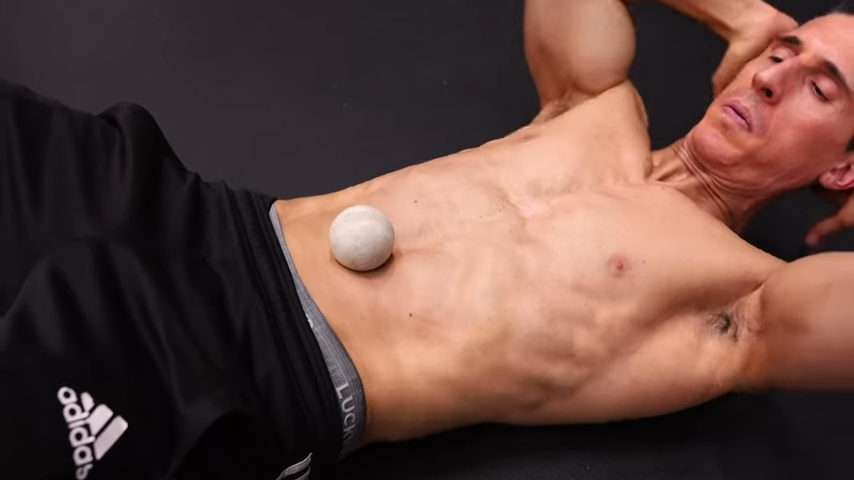
Distending and pushing out is not the same as breathing out.
You want to make sure that you can breathe out while pulling in to get the right breathing pattern.
Ultimately this will help you get the core strength and the aesthetics you’re looking for when you’re trying to carve out your six pack.
6) FOCUSING ON REPS, NOT QUALITY
If your idea of crunches is to come up two or three inches off the ground and simply pump away, you’re making the next mistake on our list.

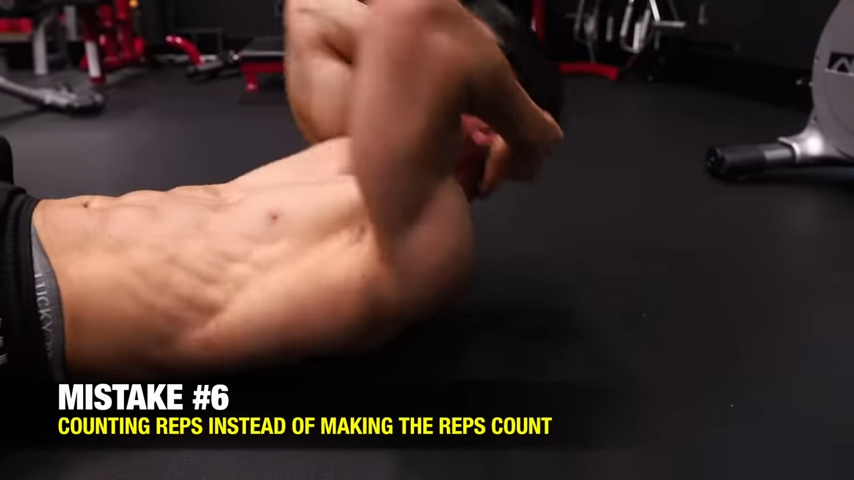
When you’re doing this, you’re not worried about the quality of your reps.
This focus on the numbers isn’t going to help you see those sculpted abs you’re looking for.
I say it all the time: STOP counting reps and instead make your reps count.
When it comes to crunches, you want to make sure that every single rep is executed properly.
The only way you’re going to do that – the safer version of this exercise – is by forgetting about how high you can count to.
Instead, focus on how well you perform the contraction – how much you can make it hurt – on every single rep you do.
7) ONLY PERFORMING LYING CRUNCHES
Our next mistake relates to what you’re seeing when you do your crunches. What I’m talking about is your view.
You need to change your view every once in a while. In other words, you need variation.
Don’t always do crunches face up. Make sure you do your crunches in other positions.
You see, people usually overlook the fact that crunches are crunches, whether or not you’re lying face up (bicycle crunches) or face down (mountain climbers).

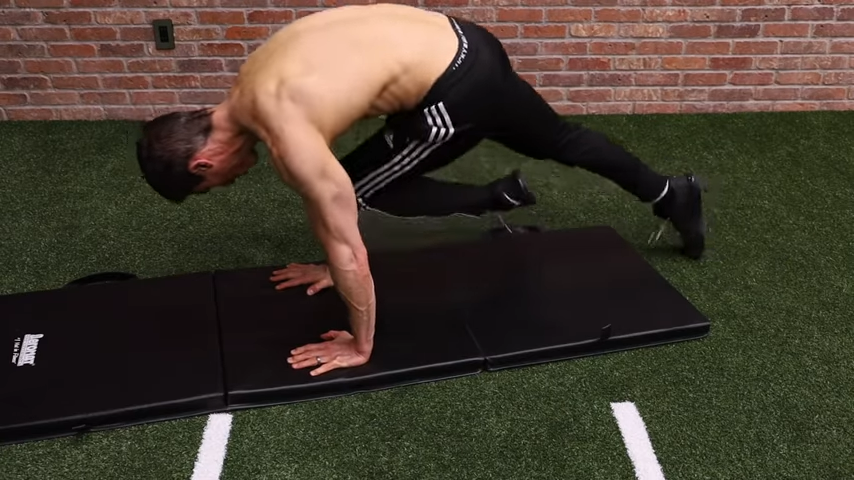
Lumbar flexion is the main driver of abdominal activation through a crunch, and we can do that so many other ways besides a traditional crunch, mountain climber, or bicycle crunch exercise.
Closed-chain crunch variations are great because they give you a more seamless flow through the kinetic chain to allow these ground reaction forces to pass up and down through our entire body, transmitting right through the entire core.
If you remember one thing from this list, it’s this:
Make sure you’re mixing it up because if you always do the same thing, you’re going to keep getting the same thing you’ve always gotten.
8) PERFORMING CRUNCH PULLDOWNS INCORRECTLY
Now that being said, I have my issues with certain crunches done in an alternative position. In this case, I’m talking about the cable crunch pulldown.
This is not the way you do it.

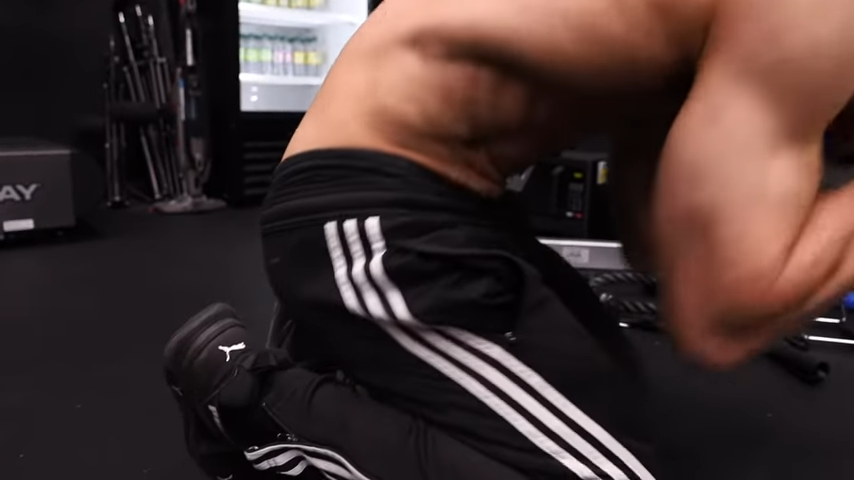
A lot of people do this exercise and focus on the hip flexion motion, not lumbar flexion.
They simply sit back onto their heels and let that do all the work for them.
If you want this exercise to work for you, you have to learn how to keep your butt in the right position, and that means the same position you started in.

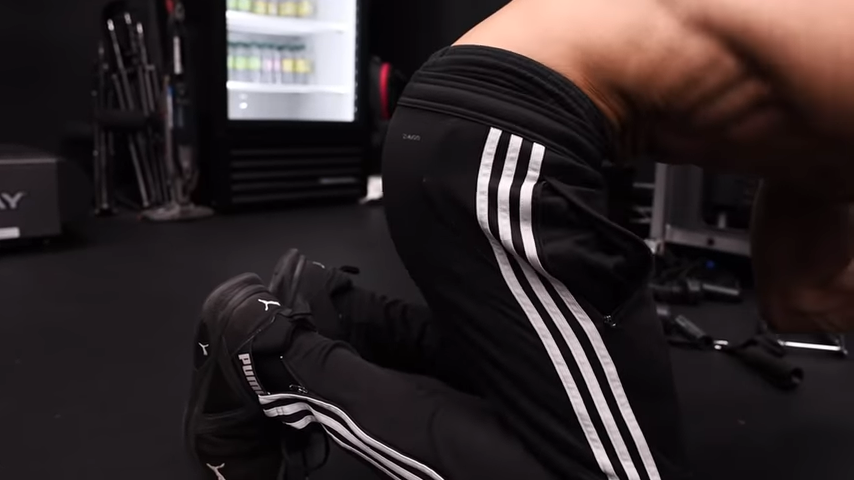
From here, you just want to simply pull your elbows down towards the ground using just the flexion of your lumbar spine and not the sitting back of your pelvis onto your heels.
I can’t stress this enough: focus on the quality of the contraction, the quality of how you perform the exercise, and forget about the numbers.
9) FORGETTING TO DO SIDE CRUNCHES
Continuing with the same idea from above, I want to talk about a version of the crunch that most people completely forget to do: the side crunch.
This is another one of the most popular core exercises in terms of effectiveness, but I rarely see guys doing it.
When you’re performing the side crunch, you want to make sure of two things:
First, you shouldn’t be pulling on your neck.
Secondly, and more importantly, you should be focusing on that really high-quality contraction.
The side crunch is my go-to exercise and the one most responsible for the oblique development that I have, because I do this with serious intent.

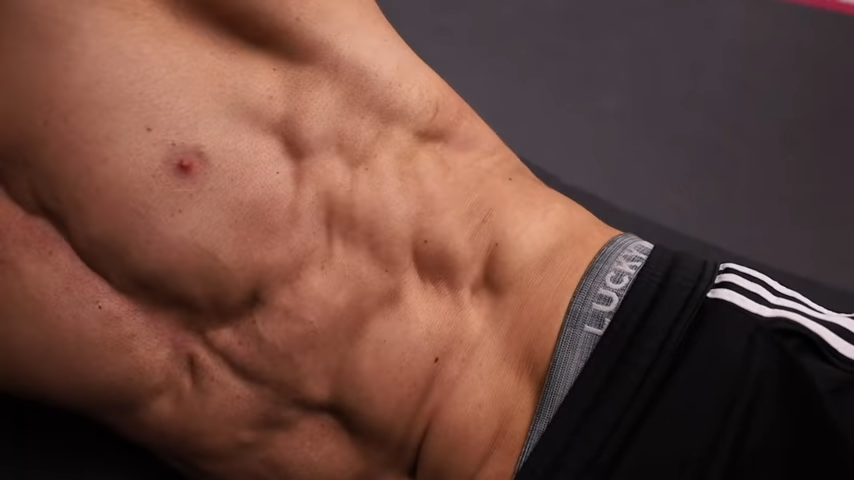
Every single time I lift off the ground, I’m not yanking on my neck, I’m focusing on getting my elbow closer to my hip, but initiating through and only through the oblique muscles on my side.
Try to put your mind right where that muscle is and think about it as if you’re the muscle itself going through that contraction. Return to the starting position and do it all again.
Do this and I promise you, you’re going to get way more out of this exercise.
The development that you’ll see here will be much quicker because you’re doing it the right way.
10) YOU’RE ONLY DOING CRUNCHES
And that brings me to mistake number 10 and that is, instead of taking advantage of other popular abs exercises – you’re only doing crunches.
I like crunches – they’re part of an important ab training program. However, if you’re only doing crunches, even if you’re doing them from alternative positions, you’re not training your abs fully.
The functions of the abs are many. In some cases, their job is to prevent you from moving at all, preventing extension, rotation, and side bending.
With that said, you want to make sure that you’re doing alternative exercises such as side twists, woodchopper, and anti-rotation exercises. These are also great for burning belly fat.
And there you have it, guys.
The top 10 abdominal crunch mistakes. Make these easy fixes so you can enjoy one of the most effective abs exercises.
How many of these mistakes will you make a conscious effort to change starting today?
If you’re looking for a training program that takes all the details into account and leaves no stone unturned, check out our ATHLEAN-X programs and see which one best fits your goals and available equipment

- The first abdominal crunch mistake is the belief that doing crunches is bad for your back. I simply don’t agree with all of the studies that claim this. These studies are using animals or cadavers. In reality, we can allow plenty of time to recuperate while avoiding extreme numbers of crunches.
- That is not to say that crunches can’t cause low back pain, because they absolutely can if you’re making our next mistake. Hooking your feet under something when performing your crunches can cause low back pain because of over activation of the hip flexors. It’s an easy fix: hook your feet either over something or not at all.
- Pulling on the neck can cause pain. Gently place your hands across your chest or behind your head but do not interlace your fingers. Look up toward the ceiling as you let your abs do all of the work.
- Stop worrying about how high you lift off the ground with every rep. Focus on clearing the shoulder blades off the mat when doing crunches, as this is enough to get full activation of the abs.
- Learn how to breathe out while not distending the abdomen during a well-executed crunch. With the contraction of the transverse abdominis, you will be able to cinch the belly down while exhaling, which will engage the abs but not lead to a protruding belly in the long run.
- When it comes to the reps you perform in your ab workouts and other effective ab exercises, stop counting them. Instead, make every one count.
- Lumbar flexion can be achieved from many other positions so stop limiting yourself to crunches on your back. Make sure to include some of the closed-chain options.
- The crunch pulldown is usually performed incorrectly. Here’s an easy fix. Instead of sitting your butt back onto your heels on every rep, make sure to keep your butt in the same position that you start in. Crunch only by flexing the spine and getting your elbows down to the floor.
- One of the biggest ab workout mistakes is not doing side crunches. They are great for isolating the obliques and getting a solid contraction of these important waist tapering muscles.
- Finally, only doing crunches in your ab workouts is not the answer either. Be sure to train the other functions of the ab muscles including anti-rotation, anti-flexion, and anti-lateral movements.
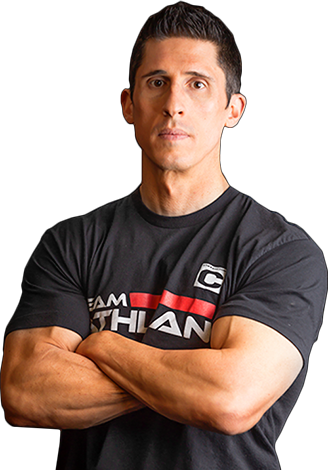
Jeff Cavaliere M.S.P.T, CSCS
Jeff Cavaliere is a Physical Therapist, Strength Coach and creator of the ATHLEAN-X Training Programs and ATHLEAN-Rx Supplements. He has a Masters in Physical Therapy (MSPT) and has worked as Head Physical Therapist for the New York Mets, as well as training many elite professional athletes in Major League Baseball, NFL, MMA and professional wrestling. His programs produce “next level” achievements in muscle size, strength and performance for professional athletes and anyone looking to build a muscular athletic physique.
